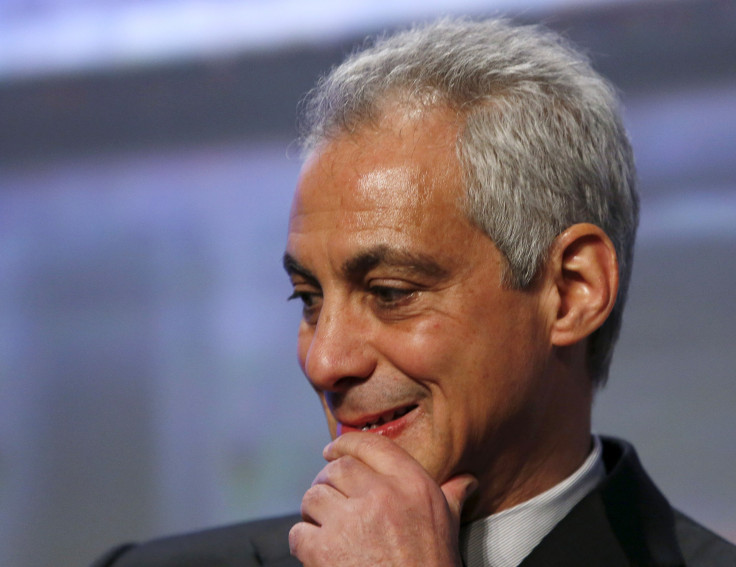Chicago, Unions Reach Deal To Rescue City Pension Fund

Chicago would increase its annual contribution to its laborers' retirement system, as would newer workers, in order to save the fund from insolvency, under an agreement in principle announced on Monday by Mayor Rahm Emanuel and unions.
While the city hailed the deal for the smallest of its four pension systems, a solution has yet to emerge for its largest fund, covering more than 50,000 active and retired municipal workers.
The city will dedicate $40 million a year from a 2014 increase in its 911 telephone surcharge to the laborers' fund, under the agreement. Workers hired after Jan. 1, 2017, would have to contribute 11.5 percent of their salaries, while those hired after Jan. 1, 2011, would choose between contributing 11.5 percent and retiring at age 65 or contributing 8.5 percent and retiring at 67.
Chicago needs the Illinois legislature to approve later this year a five-year phase-in of the higher contributions by the city to the laborers' system to attain a 90 percent funding level by 2057. The fund, which had $1.36 billion in assets at the end of 2014, covers nearly 3,000 active workers and 2,700 retirees.
In March, the Illinois Supreme Court tossed out a 2014 state law aimed at making the laborers' fund and the municipal pension system solvent by requiring higher contributions from the city and affected workers and reducing benefits.
Emanuel has said that ruling put Chicago into a straitjacket by reaffirming iron-clad protection in the Illinois Constitution against reducing public sector worker pension benefits.
Chicago Budget Director Alex Holt said the deal for the laborers' fund does not reduce benefits but gives newer workers choices as to when they can retire.
"Choice is one of the areas that the Illinois Supreme Court indicated should pass constitutional muster," she told reporters in a conference call.
The impact of the high court's ruling, along with new accounting changes, more than doubled the unfunded liability for the municipal fund to $18.6 billion at the end of 2015 from $7.13 billion at the end of 2014, according to an actuarial report by Segal Consulting released last week. It predicted the system will run out of money within the next 10 years in the absence of increased funding.
"We feel that the solution we laid out for laborers offers a good framework for discussions with the [municipal] fund," said Chicago Chief Financial Officer Carole Brown.
© Copyright Thomson Reuters 2024. All rights reserved.





















